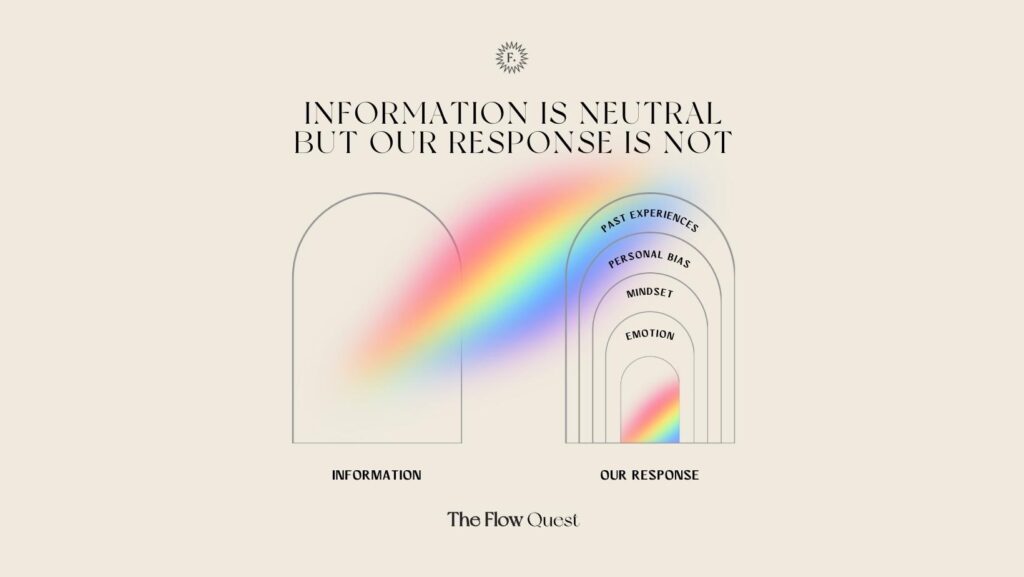Mindfulness is the practice of being fully present and engaged in the current moment, without any distractions or judgments. This technique can help you reduce stress, improve your mental health, and develop a better relationship with yourself and the world around you. If you’re new to mindfulness, it can seem overwhelming at first, but with practice and dedication, it can become a natural part of your daily routine. In this beginner’s guide to mindfulness, we’ll take a closer look at how you can start practicing mindfulness and how it can change your life for the better.
How To: Where Do I Start With Mindfulness?
Let’s start here – you are already doing it. Informal Mindfulness and Your Senses (Seeing, Hearing, Feeling, Smelling, Tasting) One of the easiest ways to start practicing mindfulness is by engaging your senses. You can do this by taking a few moments to observe your surroundings, such as the colours, shapes, and textures around you. As you focus on your senses, try to let go of any distractions or judgments and just observe what’s happening in the present moment.
Let’s go further – Mindfulness Tips (Intention, Reflection and Acceptance)
One way to practice mindfulness is by setting an intention for the day. This can be as simple as being present in the moment or focusing on a particular task. By setting an intention, you create a sense of purpose and focus for your day. Reflection is another important aspect of mindfulness. By reflecting on your actions, you can take inventory of yourself and your behaviour. If you are true to yourself, you can then accept your actions, whether good or bad, and work towards becoming a better version of yourself.

Take it to the next level with Formal Mindfulness Activities/Exercises
You can take your mindfulness practice to the next level by incorporating more formal exercises, such as meditation, breath-work and journaling. Meditation is the practice of calming the mind and slowing everything down to tune into your thoughts, feelings and emotions from a place of non judgement. There’s so many styles of meditation that include but are not limited to movement, mantra, guided and body scan. You can practice laying down, sitting up-right or while immersed in a activity. Breath work involves consciously exercising the complete awareness of your breath, feeling every inhale and exhale to its fullest. Journaling includes releasing and reflecting on your experiences, thoughts and emotions. These practices can help you develop a deeper sense of awareness and presence in the moment.
How Can Mindfulness Change your life?
Let’s look at the goal of mindfulness vs. your goals, finding the sweet spot of connection between both. When you practice mindfulness, you’re not just living in the moment for the sake of it. You’re also working towards your goals, but with a greater sense of awareness and purpose. Being in a mindful state vs. your resting state: observation and judgment. How your resting state has been holding you back. Most of us spend our days in a “resting state” of mind, where we’re not fully present or engaged in what’s happening around us. It can feel like life is happening to us which can lead to feeling stressed and unfulfilled. By practicing mindfulness, you can develop a greater sense of observation and reduce the negative impacts of your resting state.
Have vs. Have Not: Focusing On The Present
One of the benefits of mindfulness is that it can help you focus on the present moment, rather than dwelling on the past or worrying about the future. This focus on the present can help you build better relationships with others and, most importantly, with yourself.
A Happier YOU – How Mindfulness Improves Your Health
Research has shown that mindfulness can help reduce stress, anxiety, and depression, which can have a positive impact on your overall health and well-being. Practicing mindfulness can also improve your physical health, by reducing the risk of chronic diseases and improving your immune system. It can even enhance your spiritual life by helping you find deeper connection and awareness.
A Productive YOU – How Mindfulness Helps Reduce Stress & Increases Focus
Mindfulness can also have a positive impact on your productivity, by reducing stress and improving your ability to focus. When you’re fully present and engaged in what you’re doing, you are able to dial in on the main objective your trying to achieve.
Overall, mindfulness is a simple yet powerful practice that can help improve our day-to-day life in many ways. It is important to remember that mindfulness is not a magic solution to all of life’s problems, but it can help us navigate them with greater ease and clarity. By paying attention to the present moment, we can cultivate a greater sense of awareness and learn to respond to challenges in a more skillful way. With practice, mindfulness can help us cultivate more positive and fulfilling relationships with ourselves and others, improve our physical and mental health, and increase our productivity and confidence.
So, let’s start with mindfulness today, using the tips and practices mentioned in this guide. Remember, it’s a journey, not a destination. Every day is an opportunity to become more mindful and to experience the benefits of being present.
Affirmations For Starting Your Mindfulness Journey:
- I am open to learning about mindfulness.
- I accept that it takes practice to build a mindful practice.
- I will be patient and kind with myself as I explore mindfulness.
- I am capable of cultivating a mindful lifestyle.
- I am grateful for the opportunity to learn about mindfulness.

































